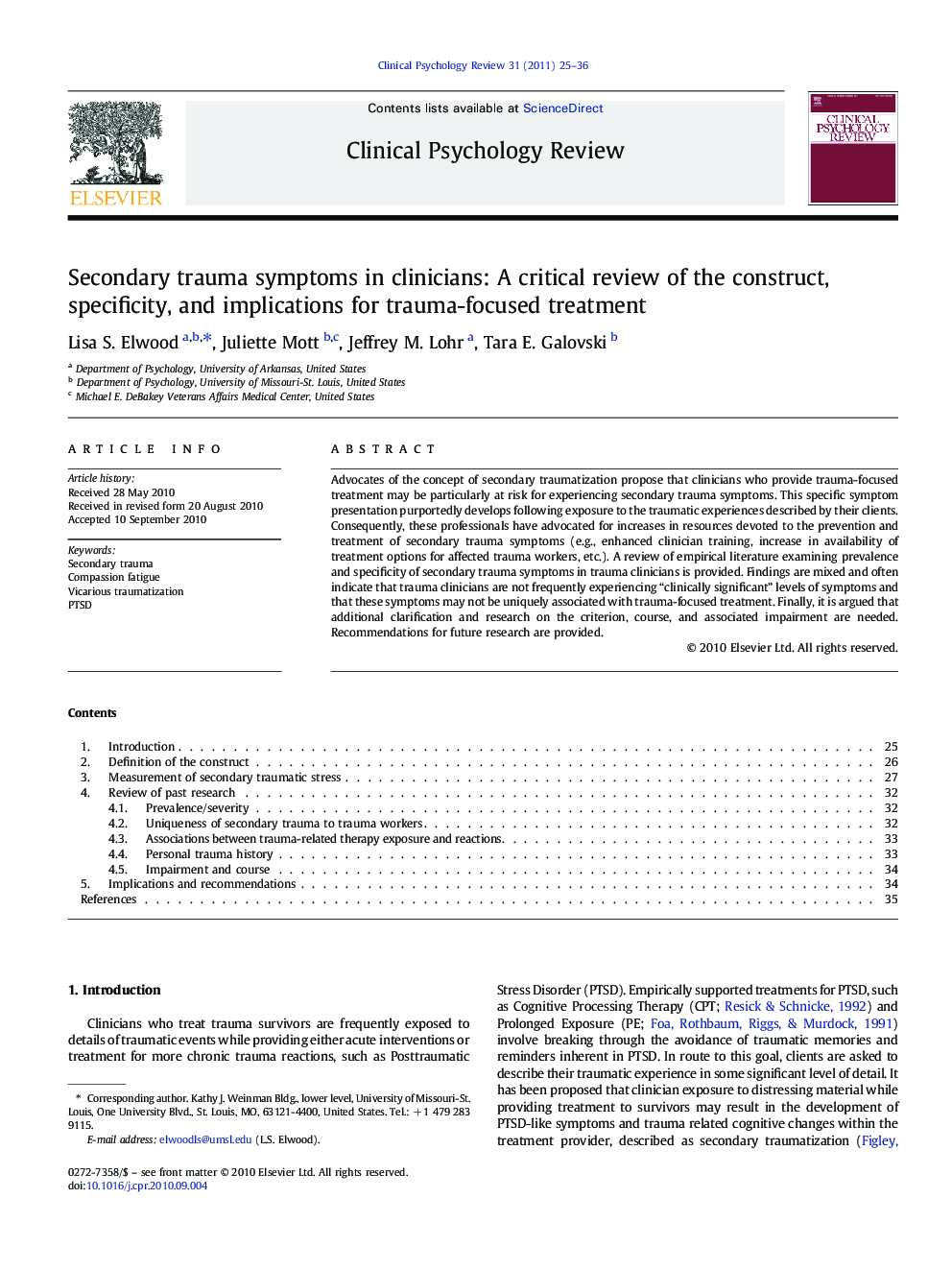| Article ID | Journal | Published Year | Pages | File Type |
|---|---|---|---|---|
| 903667 | Clinical Psychology Review | 2011 | 12 Pages |
Advocates of the concept of secondary traumatization propose that clinicians who provide trauma-focused treatment may be particularly at risk for experiencing secondary trauma symptoms. This specific symptom presentation purportedly develops following exposure to the traumatic experiences described by their clients. Consequently, these professionals have advocated for increases in resources devoted to the prevention and treatment of secondary trauma symptoms (e.g., enhanced clinician training, increase in availability of treatment options for affected trauma workers, etc.). A review of empirical literature examining prevalence and specificity of secondary trauma symptoms in trauma clinicians is provided. Findings are mixed and often indicate that trauma clinicians are not frequently experiencing “clinically significant” levels of symptoms and that these symptoms may not be uniquely associated with trauma-focused treatment. Finally, it is argued that additional clarification and research on the criterion, course, and associated impairment are needed. Recommendations for future research are provided.
Research Highlights►Secondary traumatization includes the development of PTSD symptoms in clinicians. ►Trauma clinicians are often not reporting “clinically significant” levels. ►Secondary trauma may not be uniquely associated with trauma-focused treatment. ►The criterion, course, and impairment of secondary trauma need to be clarified.
